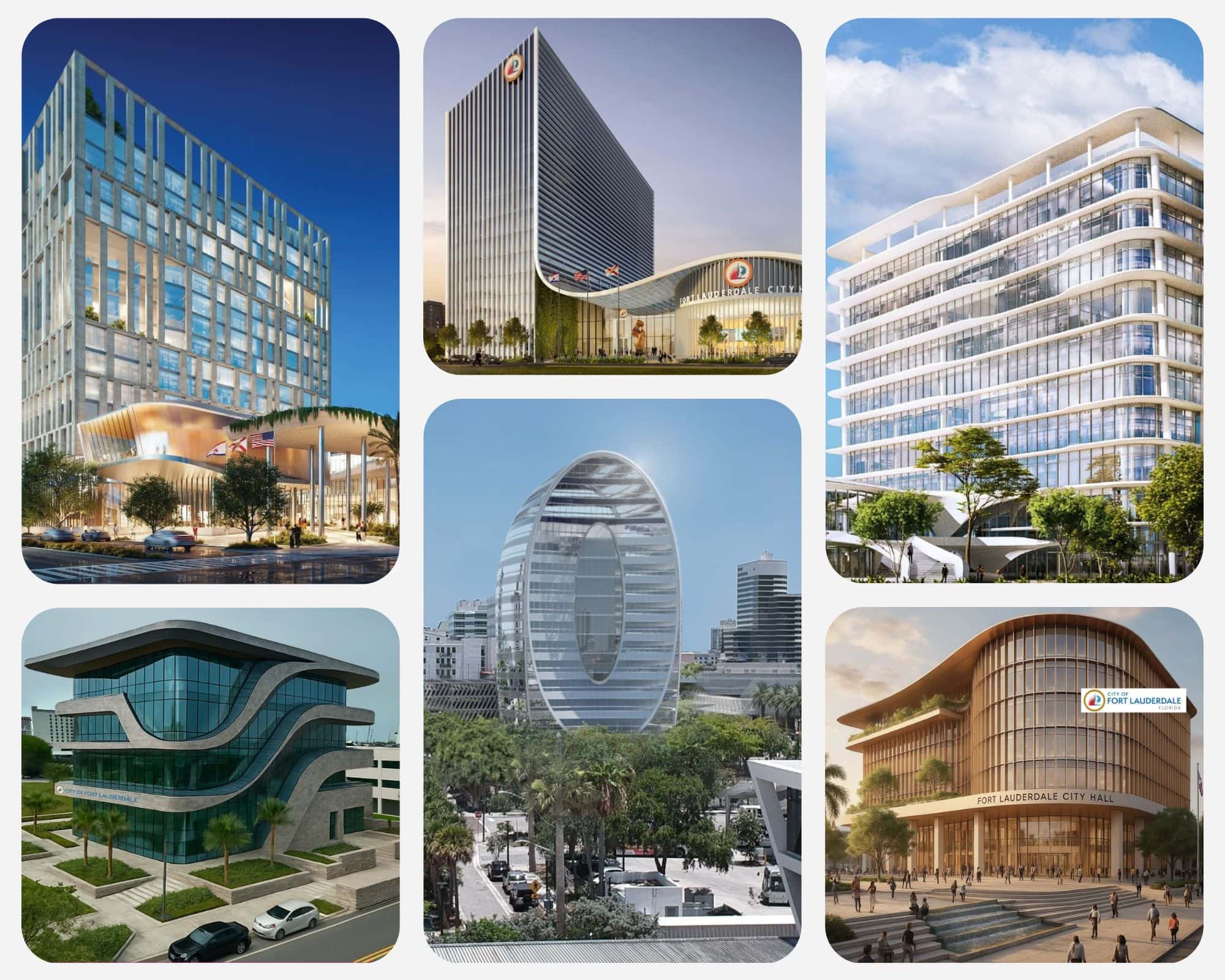
Plans to redevelop the empty lot once home to Fort Lauderdale’s City Hall is moving forward after six developers recently submitted proposals to design, finance, construct, and operate the new City Hall. This initiative, which has been in the works for nearly two years, is one of the top priorities for the city following the destruction of the previous City Hall.
For context, in April of 2023, a record storm flooded many parts of Fort Lauderdale, including the old city hall’s basement. The storm flooded the City Hall basement with over eight feet of water, causing irreparable damage to the vital functions of the building like servers, electricity, and more. As a result, the building was permanently closed, forcing the city to relocate its staff away from City Hall to dispersed locations.
The site of the new City Hall is now ready for redevelopment. Demolition has been completed, and essential preparations, including the installation of irrigation lines, the erection of chain-link fencing, and hydroseeding for vegetation, have been carried out. The site will remain in this condition until a development team is ready to begin construction.
The first proposal for the site was submitted by Meridian Infrastructure North America on May 15, 2025. Other developers were then given a 60-day window to submit their proposals, from June 3 to August 5. That window is now closed.
Here are the six proposals:
Fort Lauderdale Civic Partners:
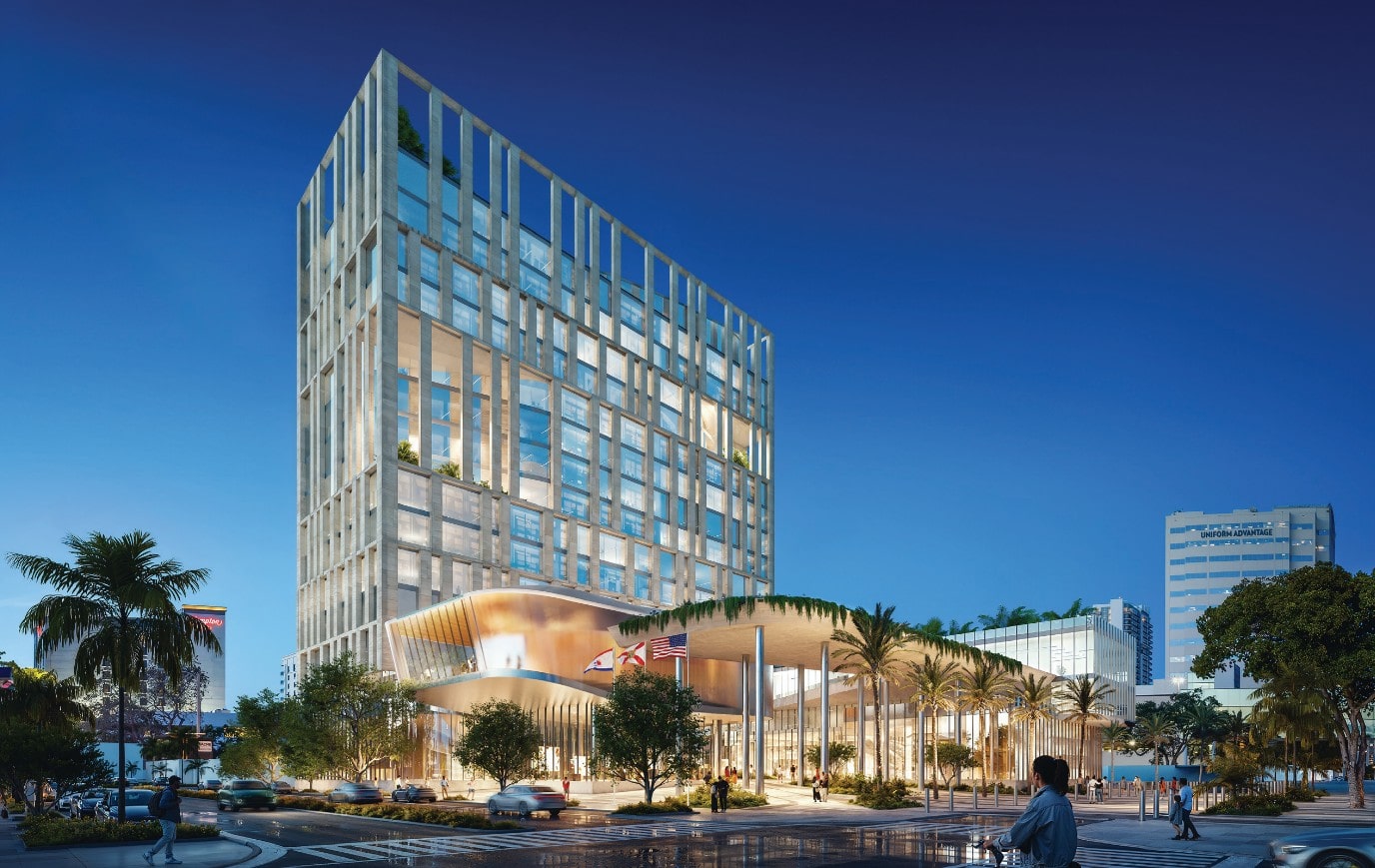
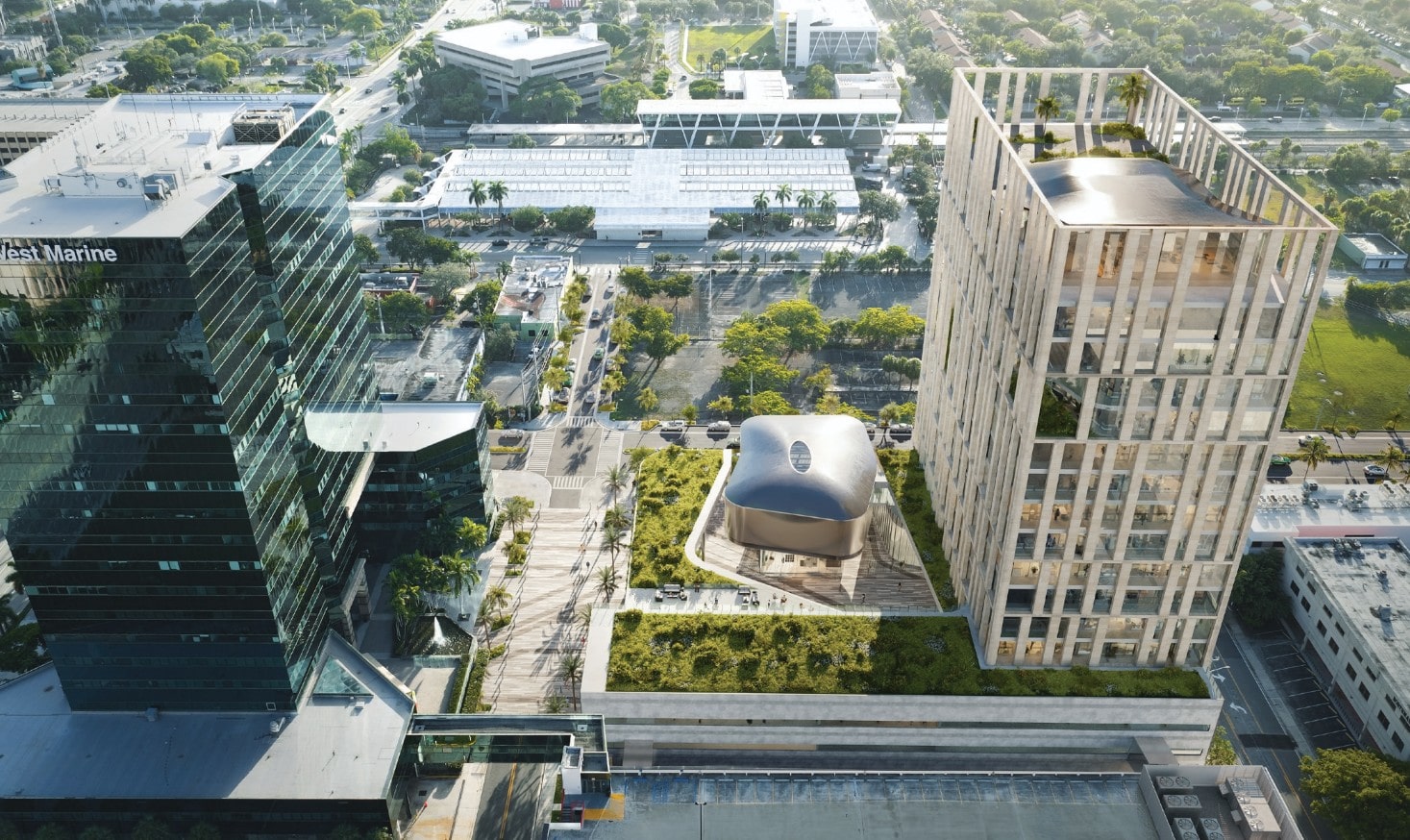
Head developer Meridian, in collaboration with contractor Suffolk, architect Zyscovich, engineer Keith, and other key partners, has put forward a proposal for a new city hall design.
The team has proposed three potential approaches for the new city hall: a comprehensive plan, an optimized plan, and a baseline plan. Option 1, the comprehensive plan, envisions a facility of about 340,000 SF anchored by a 12-story office tower atop a two- to three-story podium. This option will incorporate a wellness center, childcare center, public gallery, and other city services, along with 40,000 square feet of flexible space.
Option 2, the optimized plan, scales back the size while still addressing the community’s main needs. It features a 10-story office tower atop a two- to three-story podium. The proposal will maintain key city programs but with fewer amenity spaces. Option 3, the baseline plan, represents the most bare-bones proposal. With a seven-story office tower over a two-story podium, the proposal offers limited shared areas and only the necessary administrative functions within the smaller tower.
Across all proposals, parking will be accommodated mainly in the adjacent garage that serves multiple buildings, including the site of the former City Hall. In addition, portions of NE 1st Street are planned to be reimagined as a paved pedestrian plaza, open to both people and cars.
Fort Lauderdale Civic Partners notes that construction on the council chambers will start in August 2026, with the full complex scheduled for completion by February 2029. Meridian has shown confidence in carrying out the plan, ensuring the project stays on time and within budget: “What differentiates FLCP from simply a contractor team or other P3 developers is our role as a true long-term infrastructure partner, not just as a builder or an investor alone. We combine fast-tracked delivery with a generation-spanning investment commitment, staying accountable for operations and maintenance for decades. This means Fort Lauderdale gains not only cost and schedule certainty for construction, but a long-term partner that is financially and contractually aligned to deliver a high-quality asset that lasts.”
FTL Beacon Collaborative:
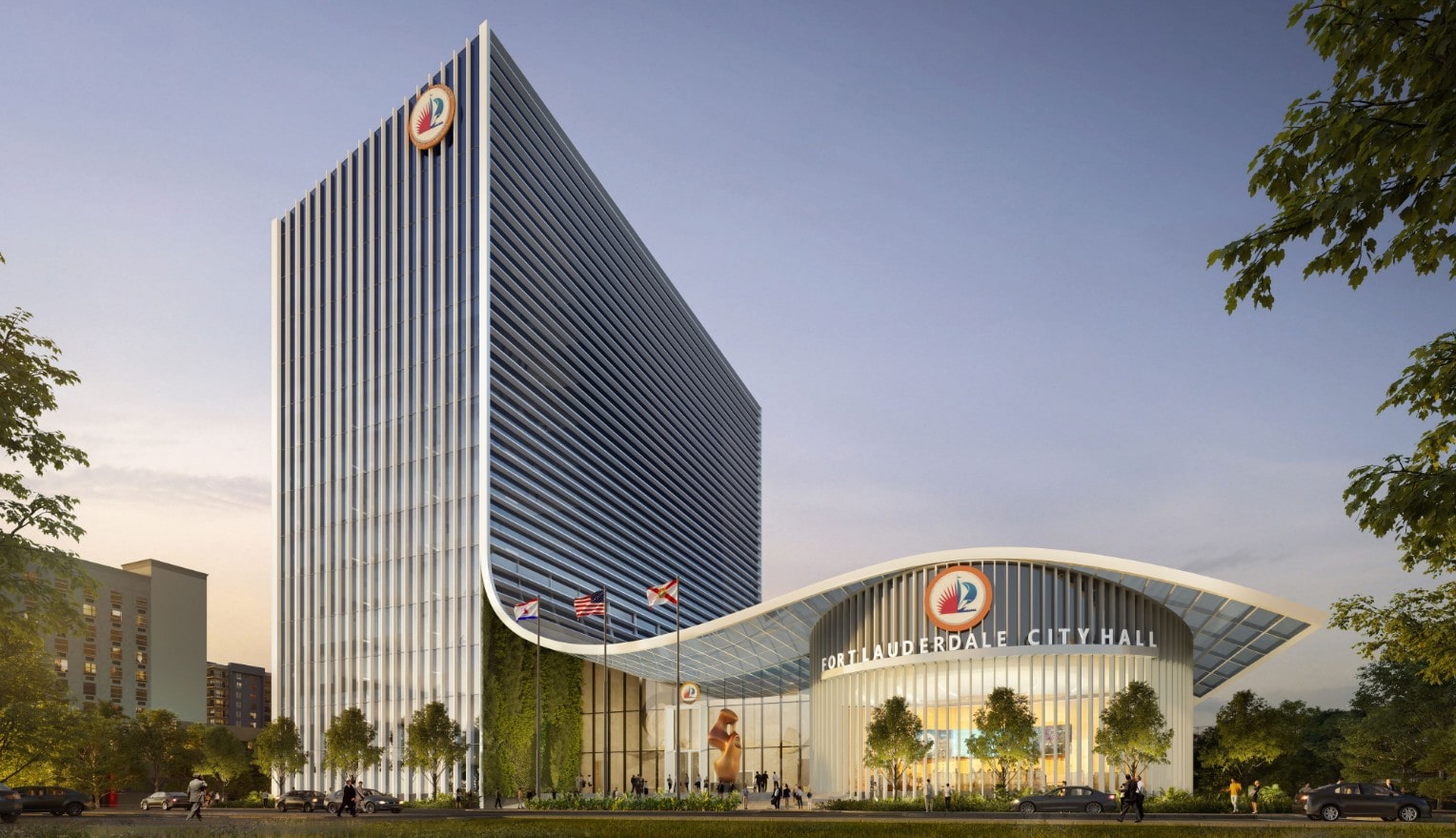
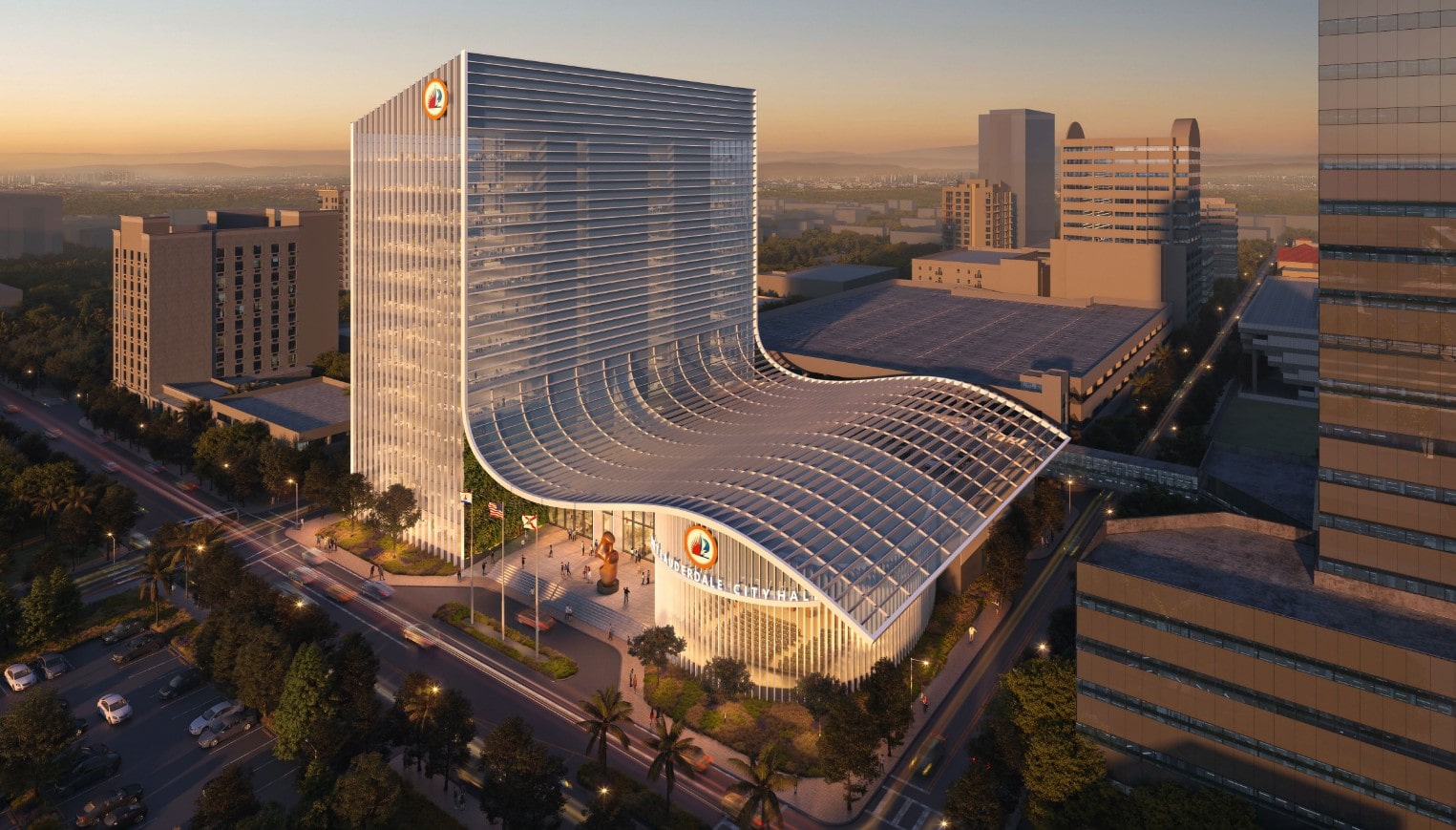
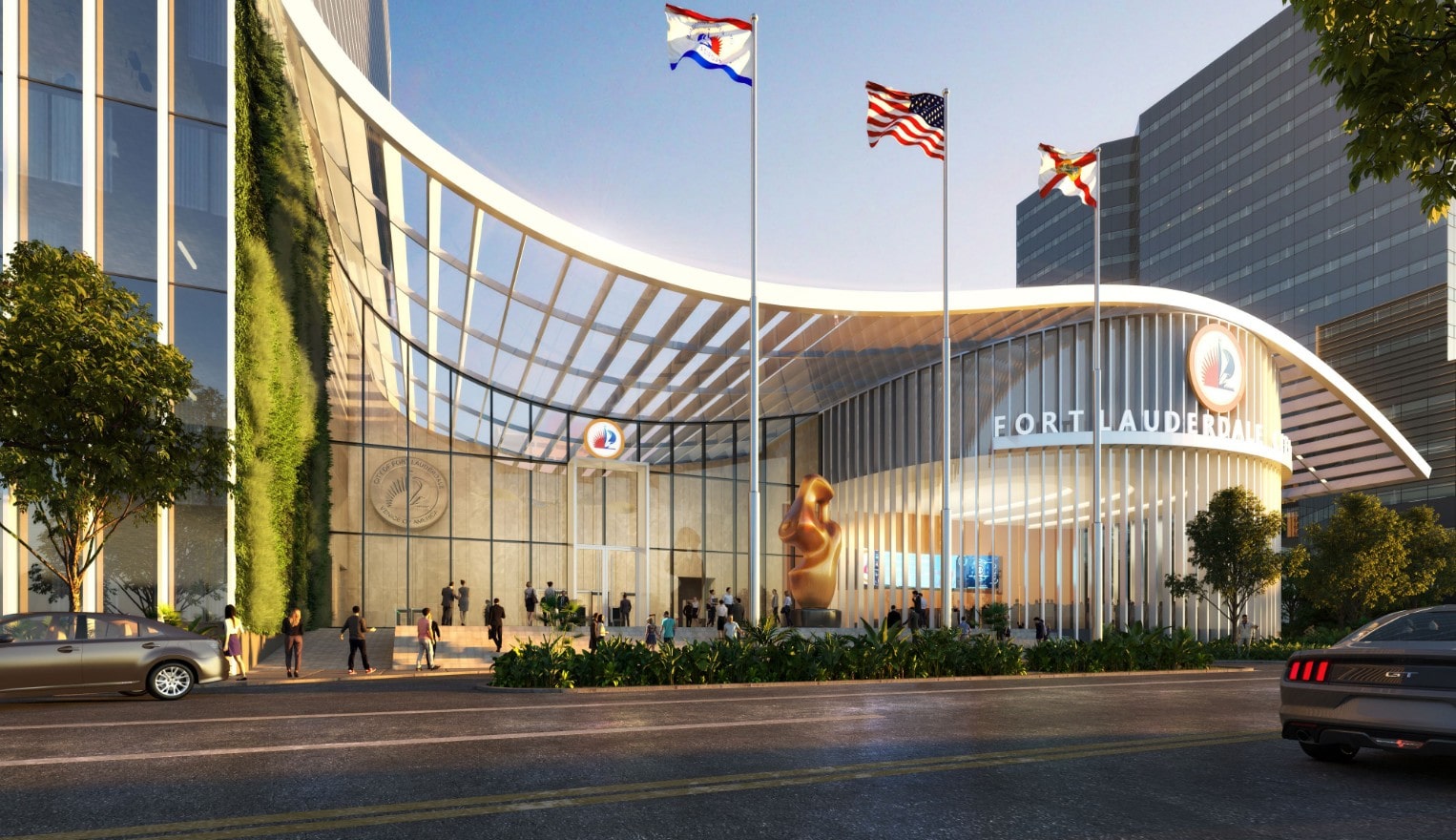
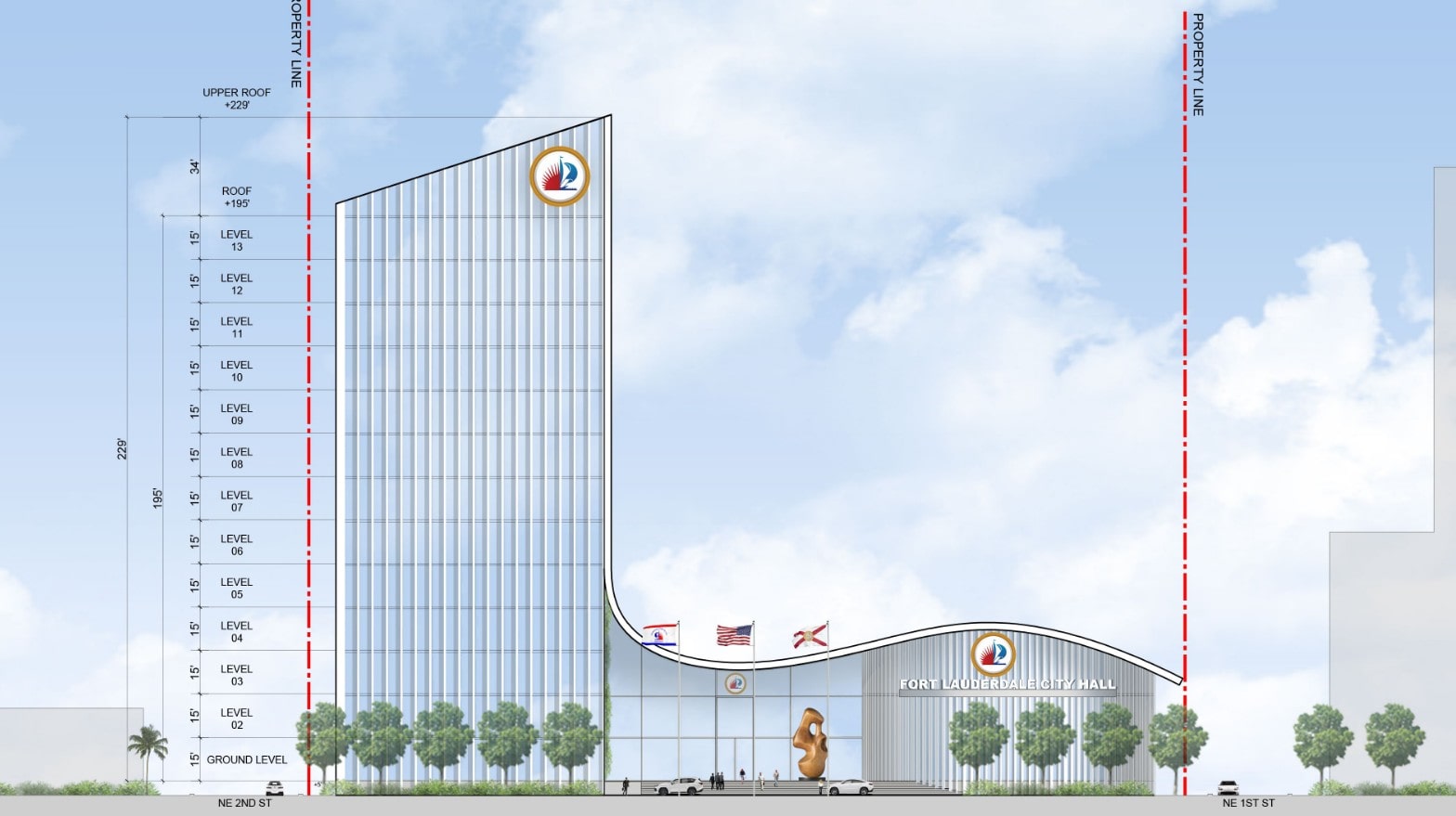
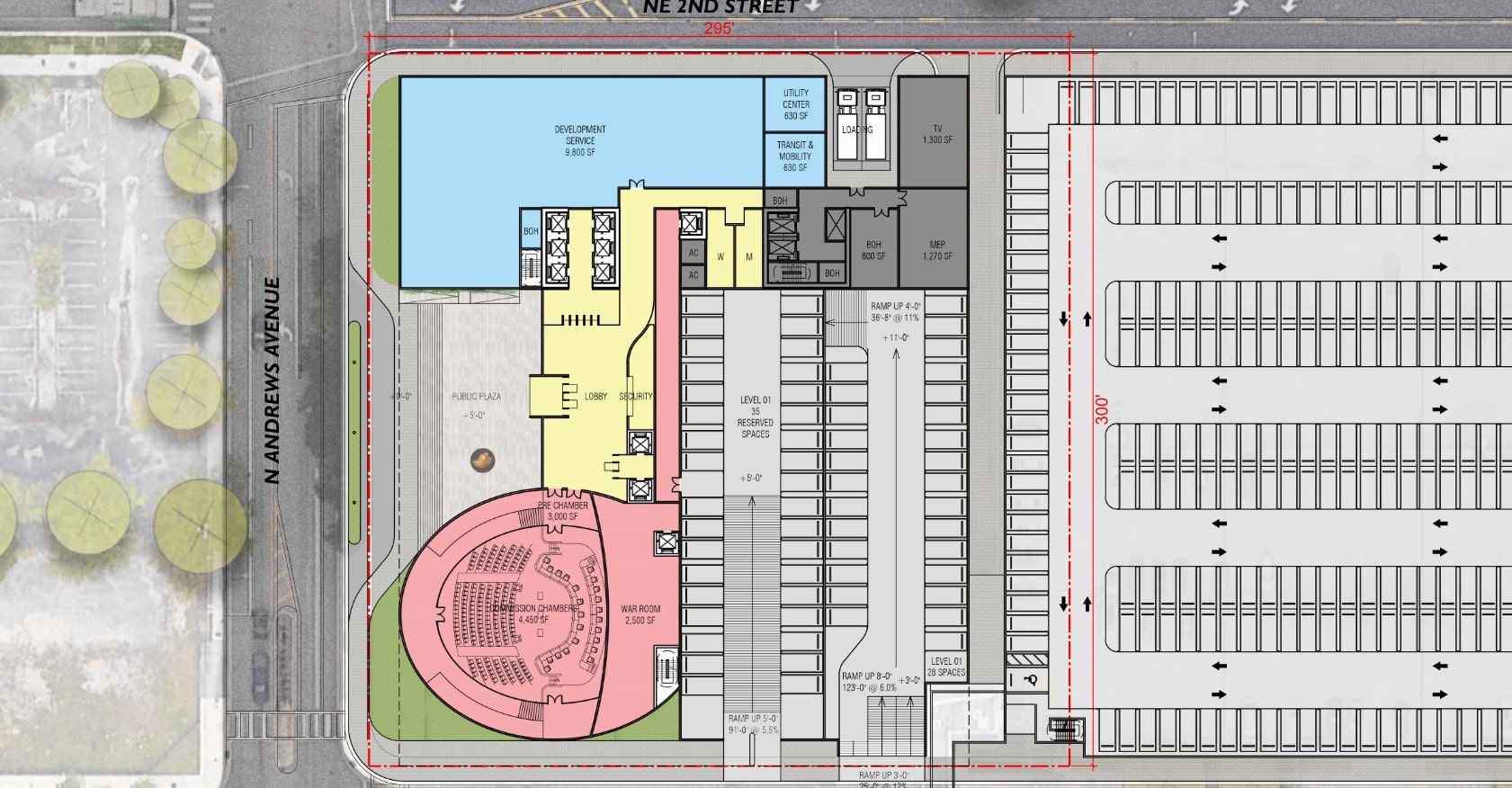
FTL Beacon Collaborative, which has completed more than 78 public-private partnership (P3) projects and developed over 200 civic facilities through its partnerships, is aiming to capture the attention of Fort Lauderdale leaders with a proposal designed by Miami-based Arquitectonica. In addition to Arquitectonica, the team will include lead developer Gilbane Development Company, associate developer Godart Florida Real Estate Investments, lead design-builder Gilbane Building Company, and other companies.
The proposal envisions an all-glass building designed to be both climate-ready and energy efficient. Horizontal sunshades will line portions of the facade, reducing heat while allowing natural light to enter. The ground floor will also be elevated to protect against future flooding, while windows will be engineered to withstand Category 4–5 hurricanes. As the tower rises, a sloped roof ending at 229 FT will conceal the parking podium.
Unlike other proposals, this design places integrated parking at the rear of the building, helping to reduce demand on the existing parking garage.
Before breaking ground, FTL Beacon Collaborative estimates the pre-development process to take around 20 months. This includes negotiations, design tweaks, and permitting before the project can begin with foundation work. Final completion of the structure is estimated to be in mid-2027.
Balfour Beatty:
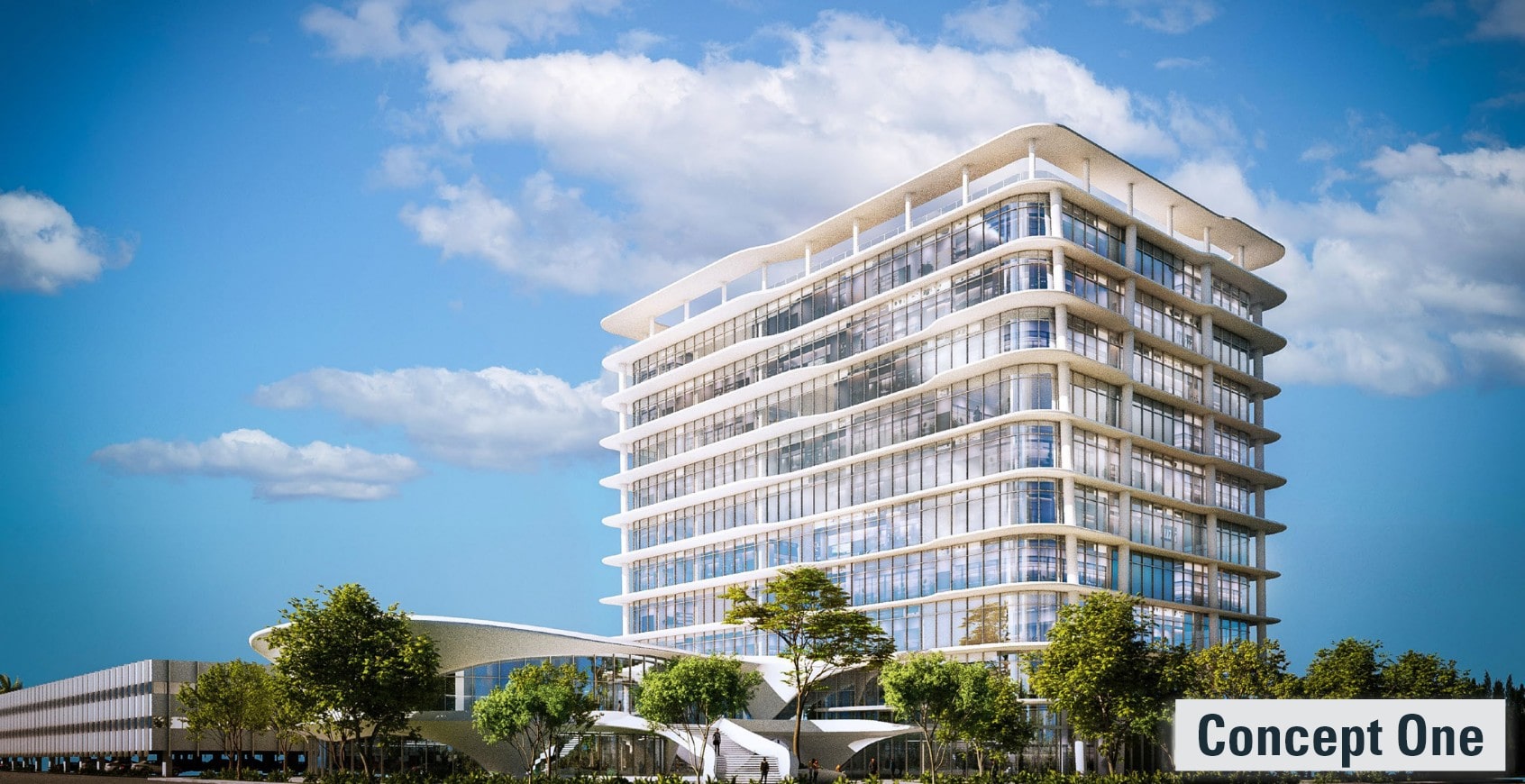

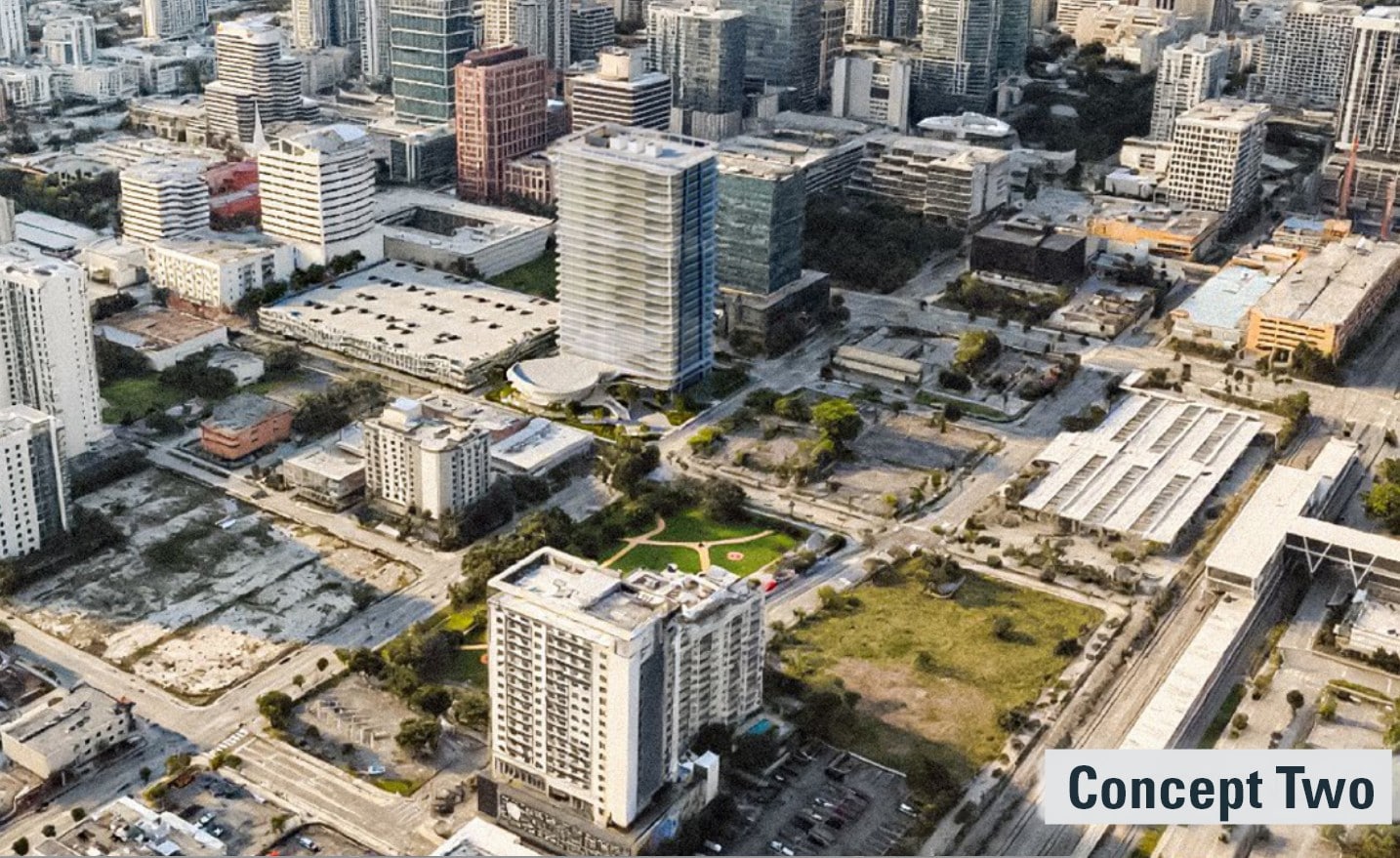

Balfour Beatty, an internationally recognized infrastructure company, is partnering with lead designer DLR Group, architect Kobi Karp, civil engineer CMA, and other collaborators to design, build, and finance the new city hall. The firm has been active in South Florida for more than nine decades and currently represents over 225 employees across the region.
Balfour Beatty’s proposal, like Meridian’s, will give the city three options: redeveloping the City Hall alone, creating a multi-tenant facility, or redeveloping both the City Hall site and adjacent parcels such as the neighboring parking garage.
Concept one will be entirely dedicated to public use, featuring a mid-rise building clad in glass. It will include public offices, community space, common areas, and potentially a library. Commercial space will be minimal, as the proposal focuses primarily on civic functions such as providing a new chamber.
Concept two builds upon the first concept but on a larger scale. In addition to the public elements, it will incorporate several additional floors for retail, private office space, and other uses. Balfour Beatty emphasizes that this version can generate revenue, in hand reducing the amount of public funding required for the City Hall construction. The company has also expressed interest in leasing a portion of the new office space, as the firm’s current regional lease is ending soon.
Concept three goes further, combining the redevelopment of Fort Lauderdale’s City Hall with the transformation of the adjacent parking garage into a multi-use district. This phase could introduce residential units, private office space, and commercial areas. Likewise, the redevelopment of adjacent parcels will likely be in a second phase.
All designs, regardless of the chosen option, will feature an ocean-inspired exterior. According to Balfour Beatty, the ‘design is more than a civic building; it is a tribute to the ocean that defines the City’s geography, culture, and spirit. It welcomes citizens with a sense of openness and flow, reinforcing transparency in governance and unity in purpose.’
Industry 1 Development Committee:
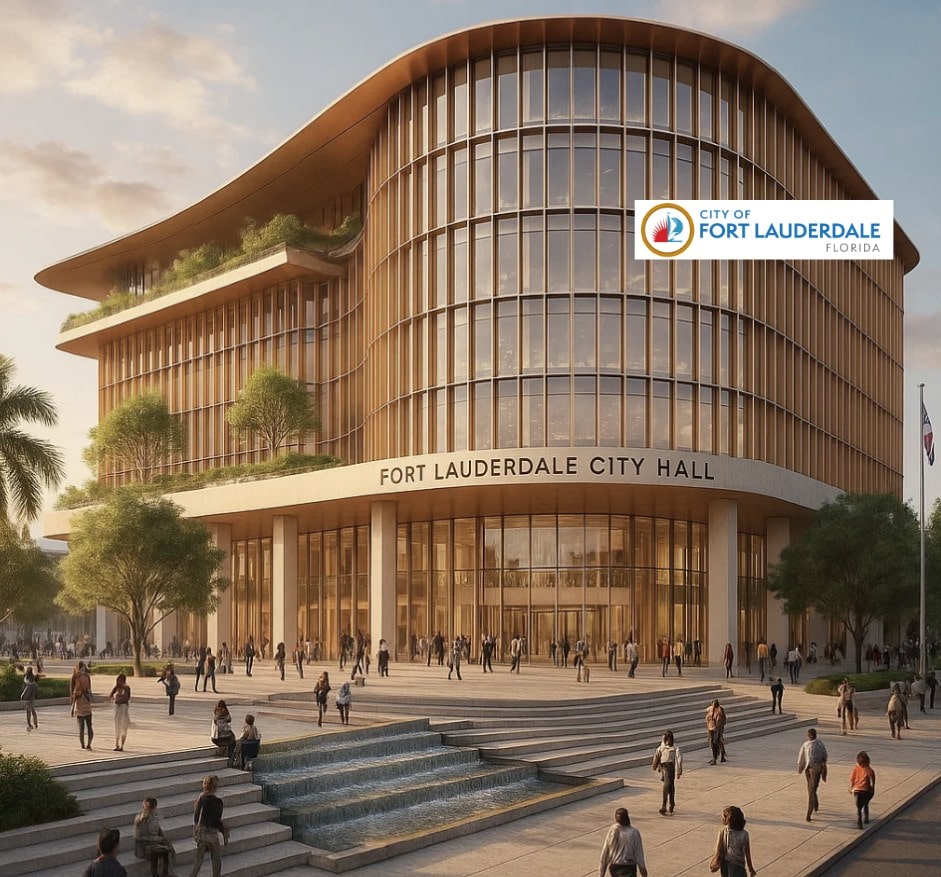
“Industry Grade Construction Group, our retained partner, has operated just 600 feet from City Hall. Our presence reflects more than office space; it reflects proximity, readiness, and commitment. Other team members have maintained offices in Fort Lauderdale for more than 46 years, reinforcing the depth of our local engagement and institutional trust.”
Industry 1 Development envisions a new City Hall that unifies civic functions and improves public access to city services by bringing together previously dispersed departments. The proposal includes integrated workspaces, commission chambers, and other collaborative areas designed to “foster connection.” Like many competing proposals, the design also incorporates flood mitigation measures in response to the outcome of the old City Hall.
Beyond advocating for a thoughtfully designed City Hall, the partnership is calling for an “economically mindful approach,” aiming to deliver the project on time and within budget. According to the provided timeline, construction is expected to take place between May 2026 and March 2028, with city staff scheduled to move in during the second quarter of 2028.
There is no architect-created design available to the public yet. Current images were made with AI and envision the possible designs for the now-vacant City Hall site.
Cypress West:
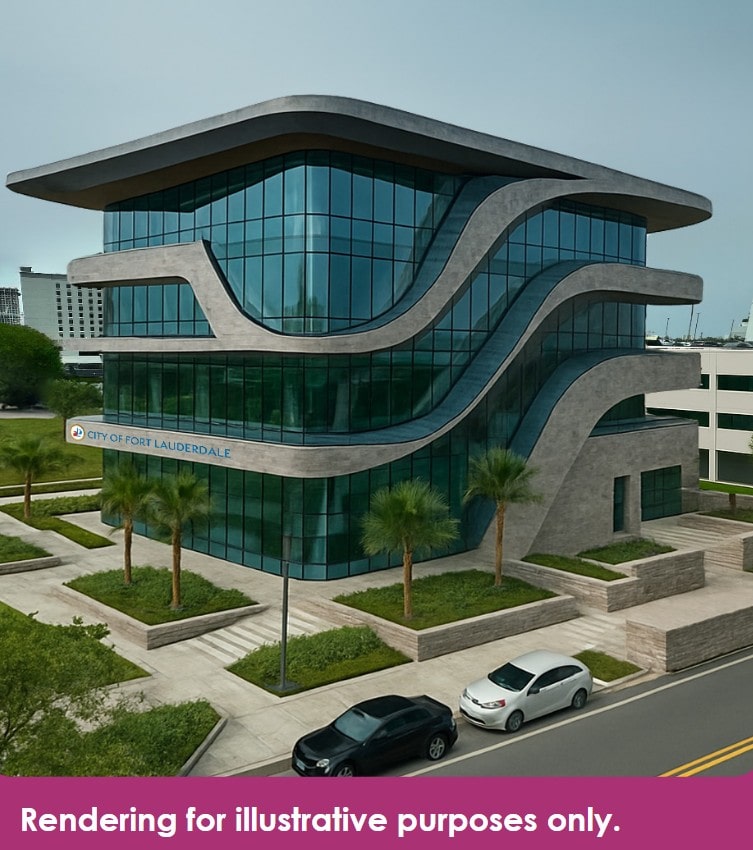
Cypress West, led in part by partner Sheldon Gross, is proposing a dual-campus approach for Fort Lauderdale’s new City Hall. Under the plan, the city would utilize the Kaplan building at 1515 West Cypress Street, currently housing the Fort Lauderdale Police Department while its new headquarters is under construction. The Kaplan building would accommodate the city’s back-office operations, while a new, smaller, and consolidated City Hall would be constructed on the vacant site.
The approach, according to Cypress West, would allow for immediate occupancy, reduce construction costs, provide greater flexibility, and ensure stronger financial responsibility. Unlike other proposals that consolidate city services into a single facility, Cypress West’s plan would distribute them across two buildings.
“In light of the publicized future financial challenges facing Fort Lauderdale, our proposal provides a unique opportunity to modernize operations, stabilize finances and better serve Fort Lauderdale residents, while accruing taxpayer benefits. Our two-campus strategy is the pragmatic, future-ready solution that balances efficiency, fiscal responsibility and civic pride” according to a letter provided by the team.
The new, public-facing City Hall will be around 100,000 SF. It’ll include space for Commission chambers, public services, and other uses. Construction on Downtown’s new City Hall is scheduled to begin in May 2026 and conclude in May 2028.
FTL City Hall Partners:
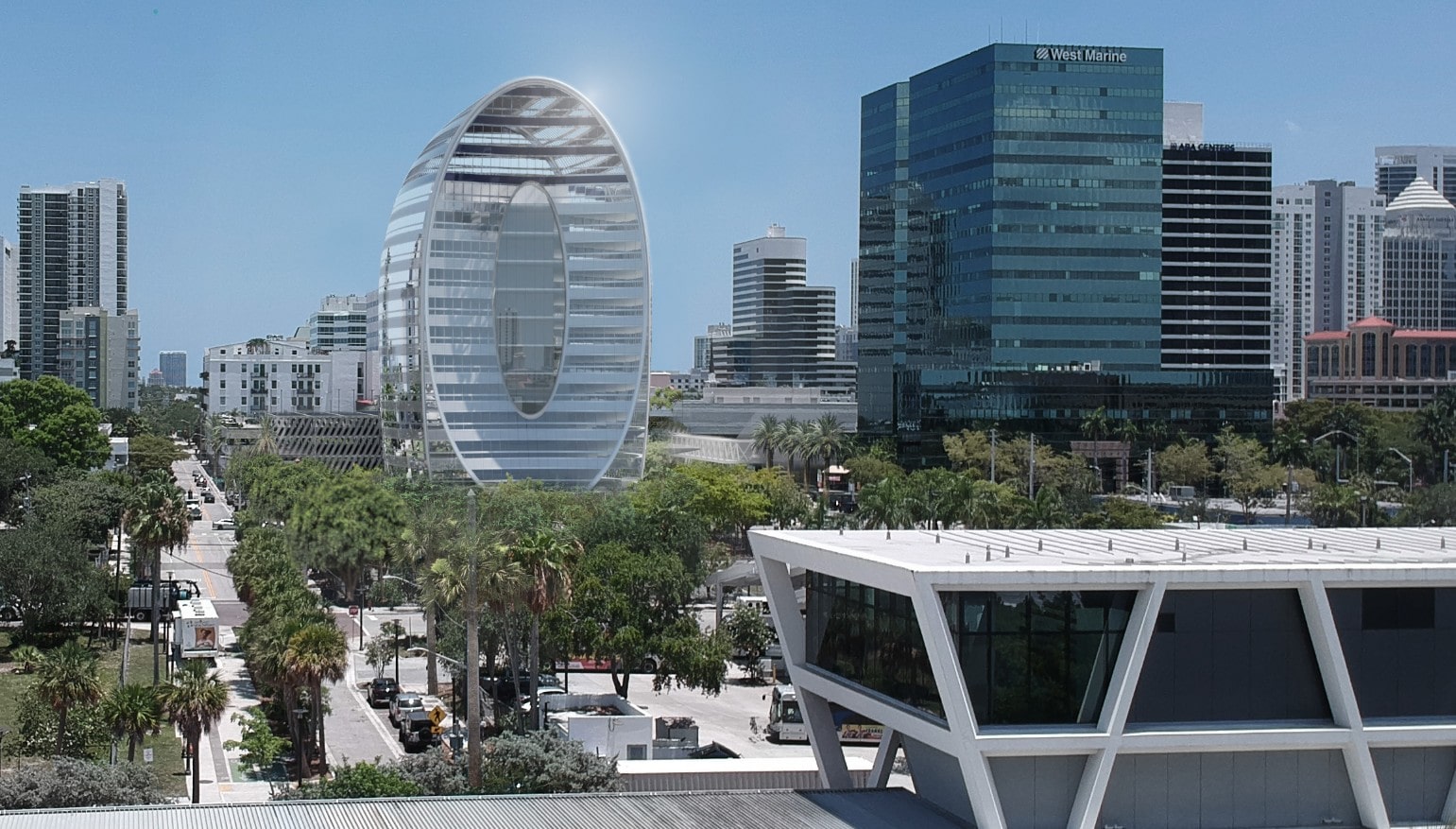
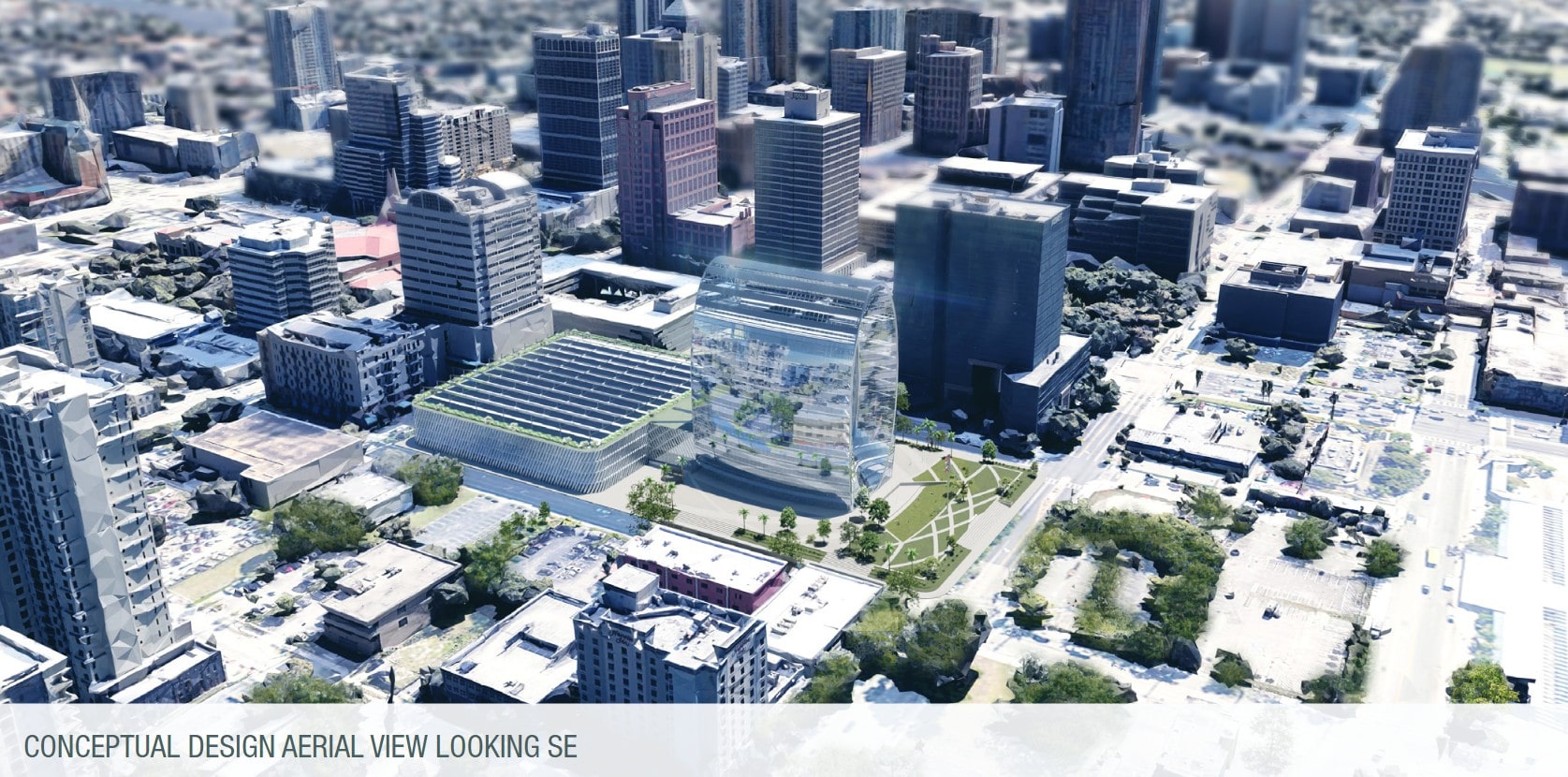
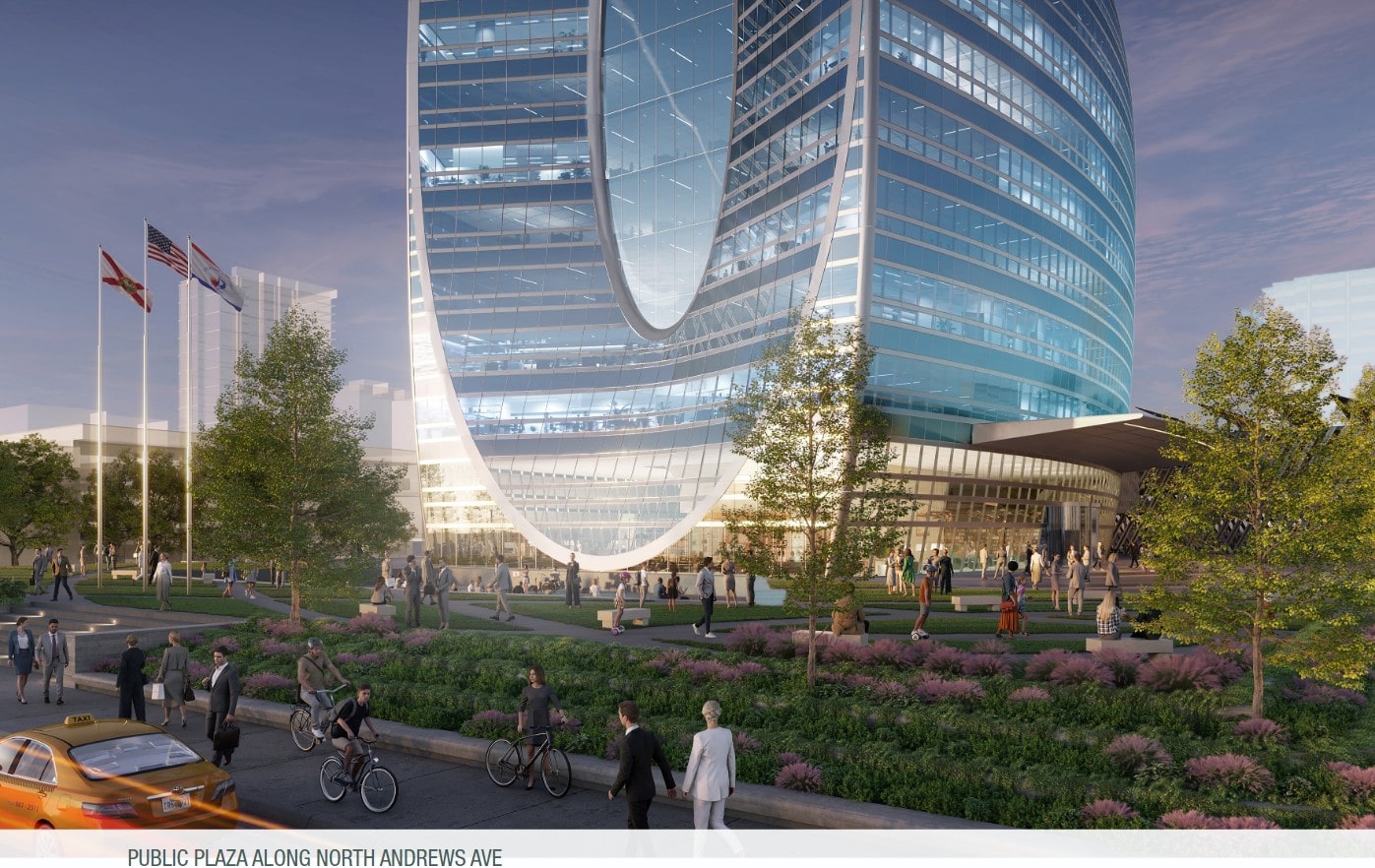
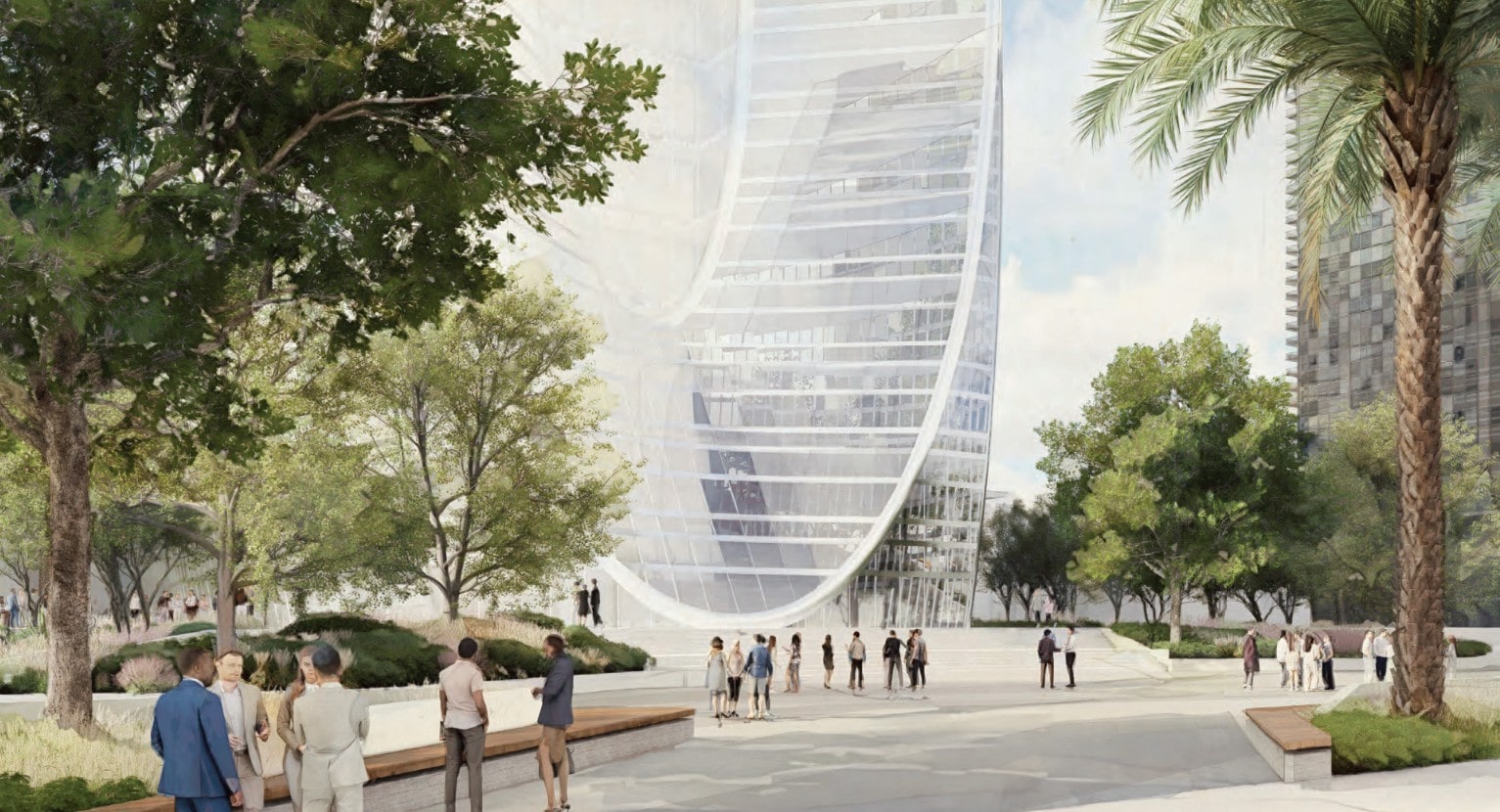
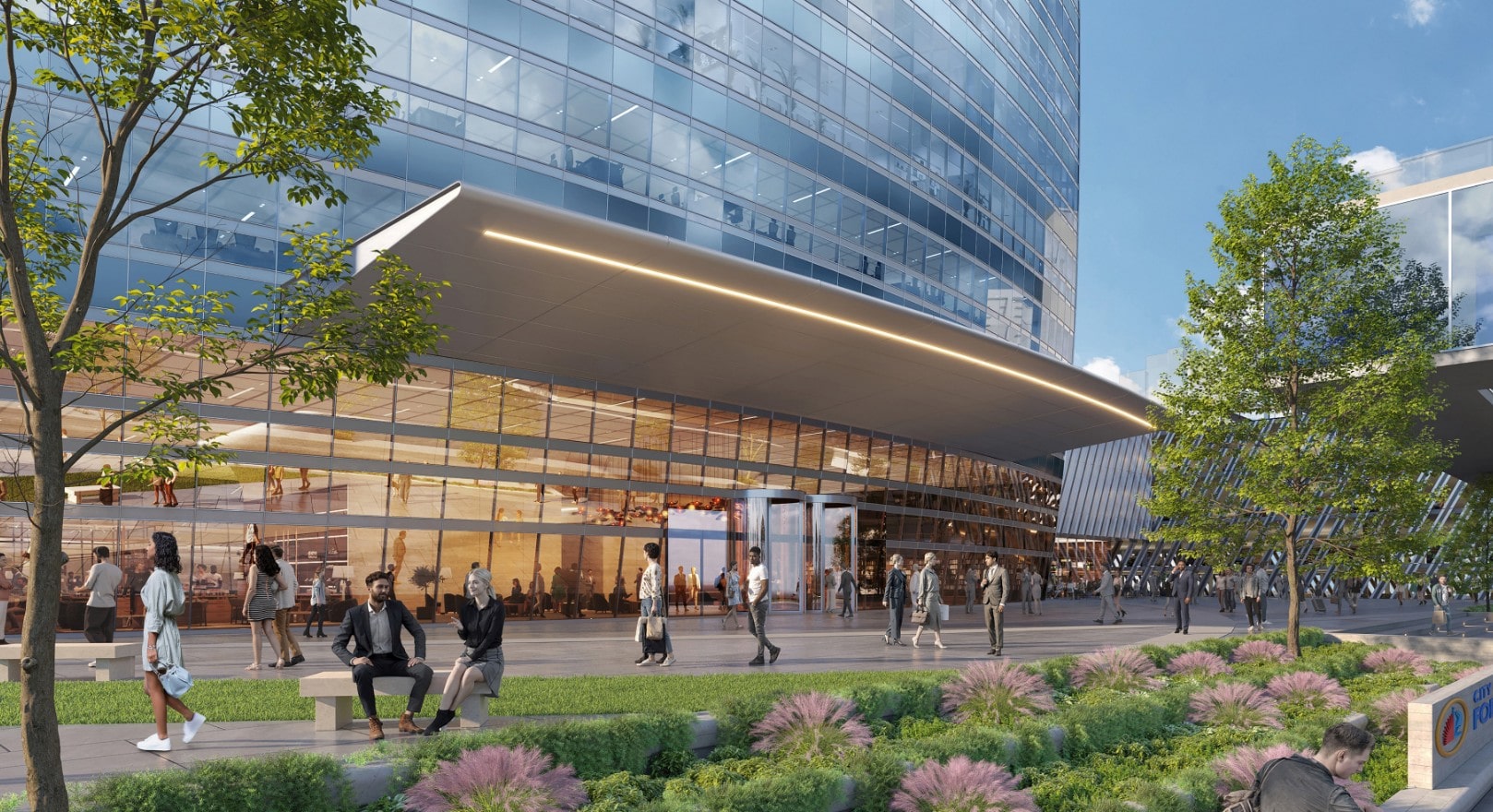
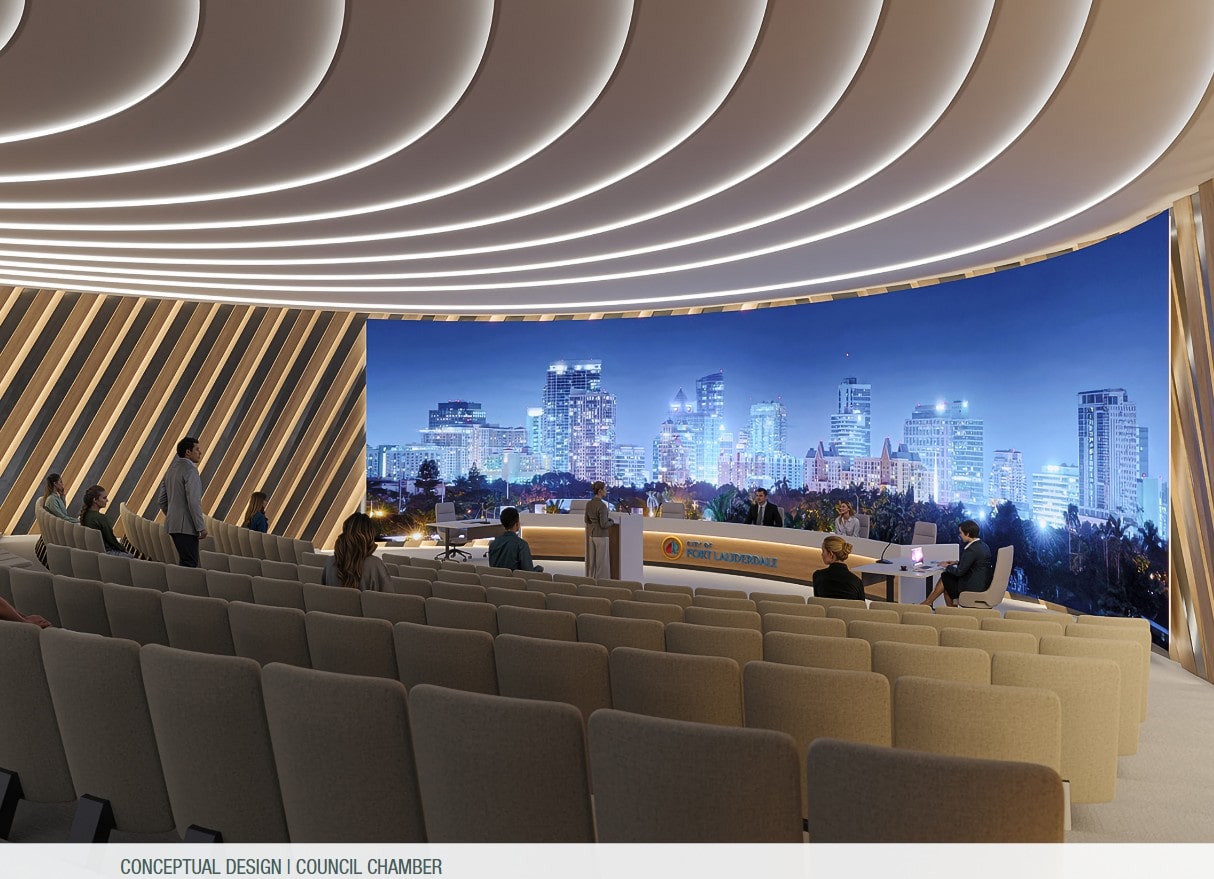
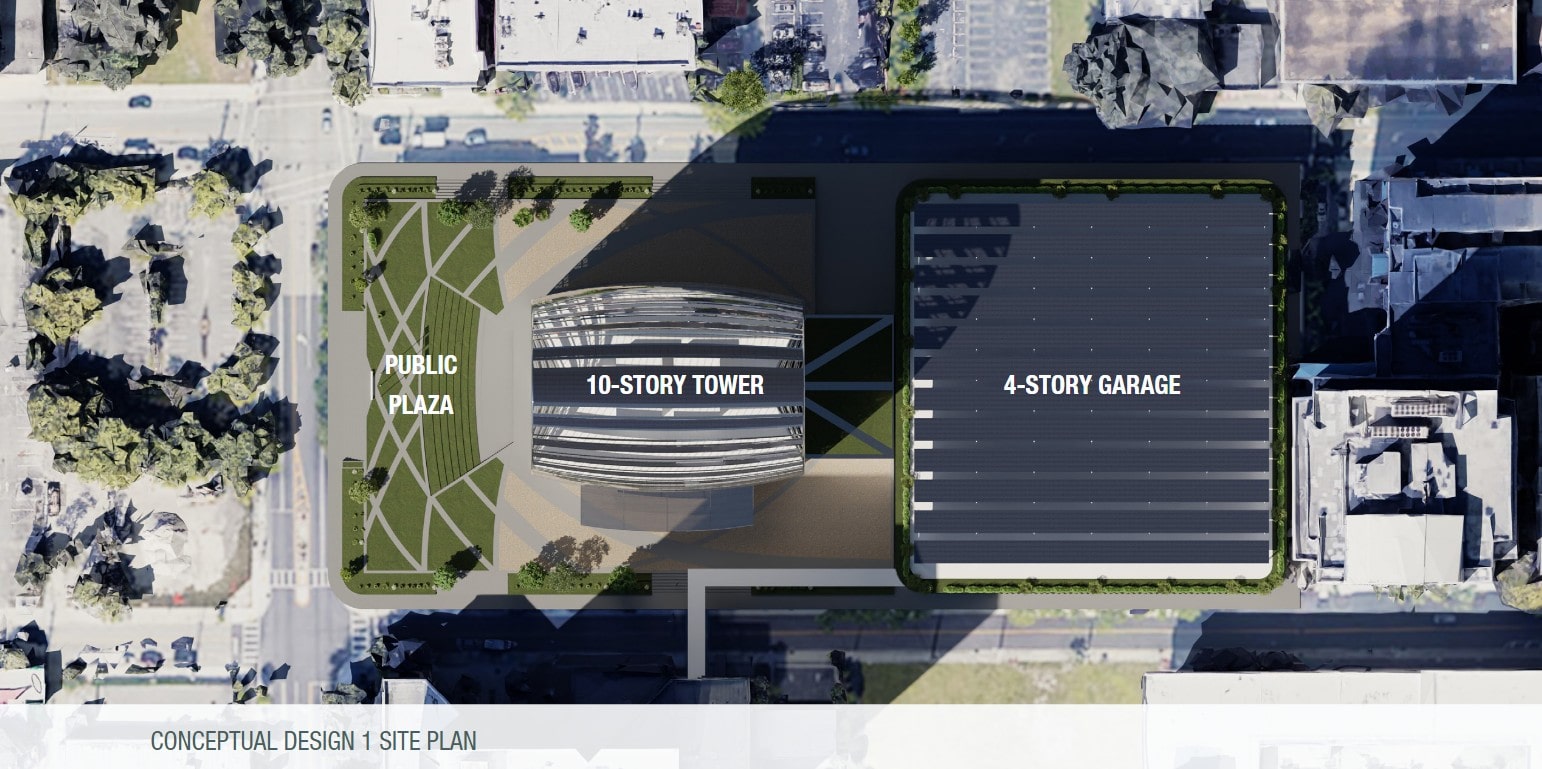
“Our team lives here. Our team serves here. Our team is accountable here. WE ARE FORT LAUDERDALE.” This motto opens the 92-page proposal submitted by FTL City Hall Partners. The partnership includes developer FTL City Hall Partners, design-build team Core and Stiles Construction, design architect Palma, architect of record PGAL, and a range of consultants. Collectively, the team brings experience from 64 successfully completed P3 projects.
Designed as one of the most distinctive proposals among the six, the plan envisions a 196,000 SF, 10-story facility with an estimated cost of $260 million. The new Class A office building would consolidate all city departments under one roof while also providing public amenities such as community event space, a City Commission Chamber, and other civic functions. In addition, the development would feature a spacious plaza with landscaping and seating. Annual operating costs are projected to range between $3.6 million and $3.9 million.
FTL City Hall Partners has a “genuine love” for the city and its residents. To better understand what citizens value most in a new City Hall, the team attended events across Fort Lauderdale and gathered feedback directly from the community. Comments such as “build something that lasts and is functional” and “we want a City Hall we can be proud of” have been emphasized in the design, according to FCHP.
The proposal is estimated to come online by the end of 2028. Beforehand, the proposal may go through various changes via the approval process.
7 Comments
My eyes were immediately drawn by FTL City Hall Partners’ rendering. This is the type of design that raises a city’s profile.
I like Cypress West. Makes sense, has dignity and melts into a premier downtown. Let’s not get caught up in over the top golden age b.s. Things change 🤞
Fort Lauderdale Civic Partners has the most visual appeal? Please, it’s a jumbled mess of a box! Even the existing city hall looks better. FTL Beacon Collaborative might look like a ski slope to some, but it’s the best out of the final four by a long shot. Most of us like nice buildings to look at.
Ft Lauderdale Civic Partners- probably has the most gravitas and visual appeal, but not by much. Needs more work and should go further.
FTL Beacon Collaborative- oh wow, a ski jump. Design is a lazy, one trick pony that is bores
at glance.
Balfour Beatty- just another mid-rise condo development along the beach. The sky bridges are a nonstarter. As good as they will ever be on the rendering. Destined to be desolate and dirty until torn down.
Industry 1- about as boring and mediocre as can possibly be.
Cypress West- a middling branch office for a middling regional bank, the kind my father built all over Long Island. That design is outdated on the drawing board. And no one is catching those waves. Form after function-Ha!
FTL City Partners- just a hideous joke in the round. The absolute worst of the lot. A sui generis nightmare foisted on the neighborhood and city.
Those that are not absolutely appalling are mediocre in the extreme. (Don’t it awlays seem…) The city needs to get this right, and until then, must keep the process open.
The last proposal is the best! We need more unique and eye-catching buildings like this here.
Zyscovich